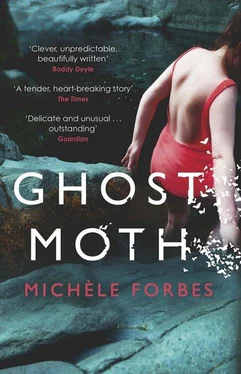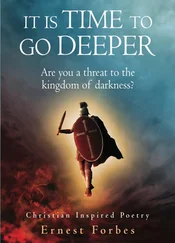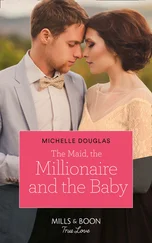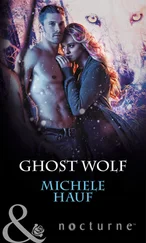Elsa can see the reflection of her face in the window, can see the small shape that is her mouth. Behind her, the outlines of her sisters’ bodies in their beds, like mountain ranges in the distance.
Elsa leaves the bedroom. As she passes her father’s room, she checks to see if he is there. There is only Stephen in his cot, fast asleep, lying on his back with both knees bent, as though he is sunbathing. Elsa goes downstairs. She cannot tell what time it is. There is not a sound in the house.
“Dad?” she calls tentatively.
“Yes, love, I’m in here.” George appears in the doorway of the front room. He smiles at Elsa. “Can’t you sleep?” he says gently.
Elsa doesn’t reply but stretches and yawns. Her hair has become tangled with every twist and turn she has made during the night and now sticks out all on one side, a semaphore of her restlessness. Elsa looks past her father, who still stands in the doorway, and into the room behind him. Suddenly she sees it. For the first time. Her mother’s coffin. She had heard the commotion of the coffin being brought into the house the day before, late in the afternoon, but she had stayed in her room. And when Maureen and Elizabeth had both gone into the front room to see their mother laid out, she had refused to go in with them. Elsa’s eyes dart quickly away from the coffin to the empty air in front of her. But too late not to realize that now the world is utterly different.
“Are you all right, darling?” George is concerned. How does he explain to Elsa? How does he help her understand?
“Dad, Isabel has a chocolate machine and it makes real chocolate.”
“Really?”
“And she can make chocolate anytime she wants to because it never runs out.”
“Very good.”
“Dad, I’m hungry.”
“Well, there are some sandwiches I’ve made for later, but you can have some now if you want. They’re on the kitchen table.”
Elsa stands rigid by the doorway.
“Elsa, there’s something I want to show you.” George moves over to his dead wife and delicately lifts a small golden locket that is hanging around her neck.
“Look,” he says to Elsa. Elsa does not move. “It’s okay darling, it’s okay,” he reassures her.
Elsa moves hesitantly toward her father.
The locket is the size of a threepenny piece and is engraved with a delicate wandering design, like a tiny garland of still-moving threads. The gold of the locket is slightly tarnished. Elsa now stands on tiptoe beside the coffin, beside her mother’s skin, catching its creamy pallor out of the corner of her eye, taking in the overwhelming smell of aging lilacs. George opens the locket. Inside are two photographs. Elsa recognizes them immediately. They have each been cut from the photograph that used to sit on the mantelpiece, the one of her parents on their honeymoon in Mexico. Both her mother and her father are squinting into the sun. Each of them wears a Mexican hat. The way the photograph has been cut, her dislocated father’s hand rests on her mother’s shoulder. Elsa thinks of her father using the huge kitchen scissors to cut her mother’s face out of the photograph, as though he is cutting out a paper doll on the back of a comic, feeding her head and shoulders to the heavy working blades, sensing the point of no return as soon as he starts. She wonders why he chose this photograph to put in the locket. They look so silly in their Mexican hats.
Elsa now closes the locket and hears a delicate click. Then she opens it again almost immediately. Has she caught them unawares? No, there they are, still squinting into the sun. Still wearing their big silly Mexican hats. She closes the locket again and thinks about the two of them in there and how they would be like that forever. Smiling at each other in their big silly Mexican hats, forever.
“There’ll be lots of people coming to the house tomorrow,” George speaks quietly. “It’ll be a hard few days, love.”
Elsa remains quiet.
“Why don’t you stay here with me for a while, Elsa? We don’t even need to talk.”
Elsa still says nothing.
“It’ll be okay,” George says, putting his hand on Elsa’s shoulder.
Elsa looks up at her father. “Can I go now?” she asks.
The vacuum cleaner has sounded relentlessly in the house since Katherine’s death, sonorously sucking the moments of love that have fallen over time onto every carpet in every room, until the house is different. Mother memories disturbed, collected, disposed. Leave the bits of flaky life, the strands of hair, the crumbs of bread eaten when there was hope. Leave the fibers of love and life as they are.
It is Saturday evening. Outside, the gray-black March sky promises sleet. Its hazy blanket of cloud is covering the whole world, not just the end of this one life, in this one house, in this one street.
A solemn swarm of people have gathered in the back room, talking in low voices and exchanging head nods and shakes as though trading in the currency of grief.
Elsa looks around to see if Isabel is there. No. Probably wading deep in seashells with her father off some windswept coast, dusk rippling on their earnest pursuit.
Elsa’s Aunt Vera, her mother’s sister, appears and, wrapping her arms around Elsa, hugs her tight. So tight, in fact, that, for as long as the hug lasts, Elsa cannot breathe. But her Aunt Vera smells lovely. She smells of roses and toast. Vera lets go and stares at Elsa. She says nothing for a while.
Elsa looks up at her Aunt Vera. It is like looking at her mother. Vera has the same warm red-brown tones to her hair that her mother had and the same ring of hazel around her eyes — although now her eyes are tired and the skin around them slightly puffed and flecked with pink — and when she speaks, it is as though it is her mother speaking, so similar are their inflections. Vera is casting a spell over Elsa.
“Now, my love, can I get you something to drink? Would you like some lemonade?”
“No, thank you, Auntie Vera.”
Elsa thinks her Aunt Vera looks so elegant in her red tweed suit with its tiny handmade wooden buttons. She watches as Vera clicks open her shiny brown handbag — which matches her shiny brown shoes — and, searching through its contents for a moment, pulls out a crumpled cotton handkerchief. When she opens the handkerchief, there is an amber brooch inside.
“I was just looking through some things I had. And I remembered this. It used to be your mother’s, then she gave it to me, and I thought it might be nice for you to have it.”
Elsa looks at the brooch nestled in the handkerchief in the palm of Vera’s hand. The brooch is shaped like a marigold, its petals golden, its center an amber glass heart.
“Would you like to have it?”
“Yes, thank you, Auntie Vera.”
Elsa lifts the brooch and then holds it to her eye and squints through it. It is an automatic reaction, to lift it to her eye, to want to sense the world through the light it promises.
“You’re the image of your mother, d’you know that?” Vera remarks tenderly, stroking the side of Elsa’s face.
But Elsa does not answer. She thinks it funny that Vera, who is the image of her mother, should say this to her. Elsa turns her concentration now on what she sees through the glass center of the brooch. The amber warms her. Its uneven glassy surface makes things appear hundreds of times beside themselves. Elsa now views the room through her trinket periscope, delighted to find, suddenly, such abundant life beached before her. There, from her warm and watery den behind the colored glass, she can see Nanny Anna shaking all of her one hundred heads in unison while one hundred of Uncle Frank’s hands gently pat all of her shoulders at once. One hundred each of George’s twin sisters, Heather and Susan, sit still and quiet at the table together in the center of the room, and Aunt Vera has now conveniently multiplied one hundredfold to be able to fill all of the one hundred cups of tea requested by the abundant sea of faces.
Читать дальше












